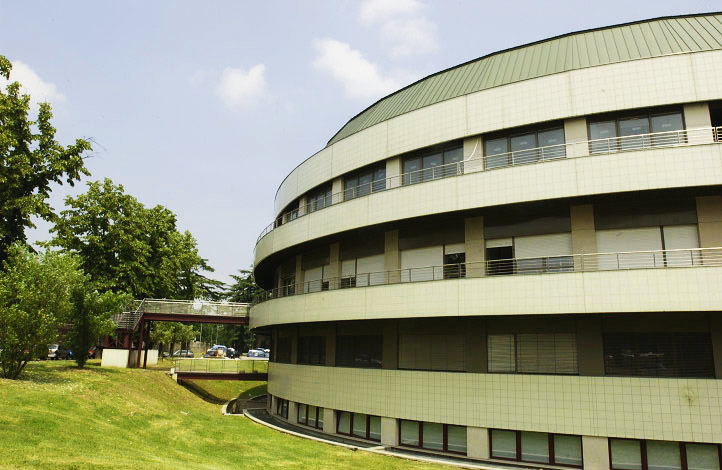The Graduate School of Health and Life Sciences includes six PhD programmes:
- Applied Life and Health Sciences
- Biomolecular Medicine
- Cardiovascular Sciences
- Clinical and Experimental Biomedical Sciences
- Inflammation, Immunity and Cancer
- Neuroscience, Psychological and Psychiatric Sciences, and Movement Sciences

Medicine didactic building
Applied Life and Health Sciences
This PhD is organised around three curricula:
- Genomics;
- Epidemiology and Biostatistics; and
- Microbiology and Infectious diseases.
Students will acquire expertise in scientific research methods focusing on bioscience and medical research, and will apply new “omics” and high-throughput technologies. The students will be trained in biology and medicine topics spanning genomics, pharmacogenomics, preventive and predictive medicine, control of the microbial environment, and drug resistance.
Biomolecular Medicine
This PhD is organised around two curricula:
- Biochemistry and
- Clinical proteomics and genomics.
The first provides students with training in theoretical and methodological biochemistry, thus developing a molecular approach to the analysis of physiological and pathological events.
The second provides theoretical and practical education in proteomics and genomics, which is applied to the study of haematologic, oncologic and non-oncologic, immune/rheumatologic and cardiovascular diseases.
Cardiovascular Sciences
The PhD is organised around three curricula:
- Biotechnology and bioengineering of cardiovascular devices;
- New technologies and techniques for cardiovascular surgery;
- Molecular biology of cardiovascular system.
The course aims at familiarising students with the principles of cardiovascular medicine and the corresponding research tools and methods and at enhancing their basic preparation on the methodologies and technologies of cardiovascular devices.
Clinical and Experimental Biomedical Sciences
This PhD is organised around two curricula:
- Epidemiology, genetics and pathophysiology of chronic degenerative and neoplastic diseases, and
- Innovation and technology for chronic degenerative and neoplastic diseases.
The course includes the study of epidemiology, genetics and pathophysiology of insulin resistance and related diseases, the study of molecular mechanisms and pathophysiology phenomena that link inflammation to chronic-degenerative diseases, the study of stem cells in regenerative medicine and immunoregulatory and antitumoral cell therapy. It will provide students with the theoretical and practical knowledge to carry out medical research and will train them for a future academic or research career in public or private institutions.
Inflammation, Immunity and Cancer
This PhD course is based on a single curriculum that aims to train students in the mechanisms and cell types underlying inflammation, immunity and cancer, and the tools and methods used to investigate these pathological processes.
The integrated research approach, spanning laboratory research through to clinical settings, is supported by a multidisciplinary teaching approach that includes: general pathology, anatomo-pathology, immunology, oncology and oncologic surgery.
Neuroscience, Psychological Sciences and Psychiatric Sciences, and Movement Sciences
The PhD course, organised in a single curriculum, is inspired by a highly integrated approach to the issue “brain, mind and body” and aims for excellence in research and training. It is organised around three research areas:
- Neuroscience and neurological pathologies: neurophysiology, neuropharmacology, neuroscience, developmental neurobiology, brain imaging, neurological pathophysiology, neurology, neuropathology, clinical neurophysiology, neuro-rehabilitation, experimental neurosurgery;
- Psychological and psychiatric sciences: epidemiological psychiatry, psychiatric genetics, biological psychiatry, psychopharmacology, psychotherapy, analysis of predictors for the outcome of mental disorders; dependence on abuse substances, neuropsychology, cognitive, experimental, social and clinical psychology;
- Movement sciences: determinants of motor performance, physiology of ageing; models for the promotion of exercise aimed at changing lifestyles.



